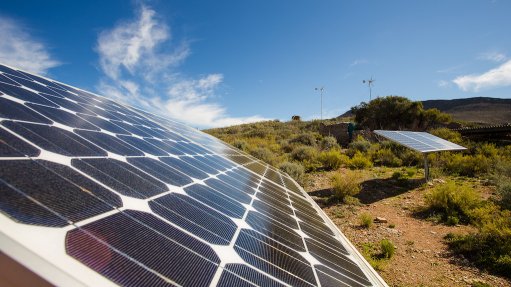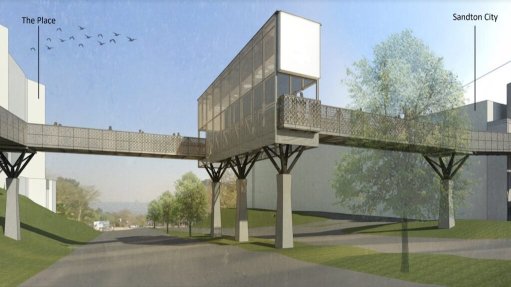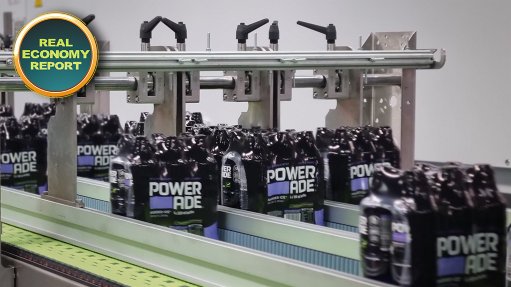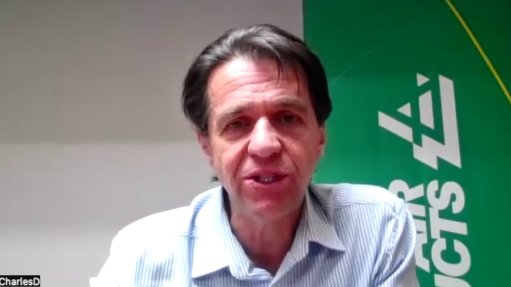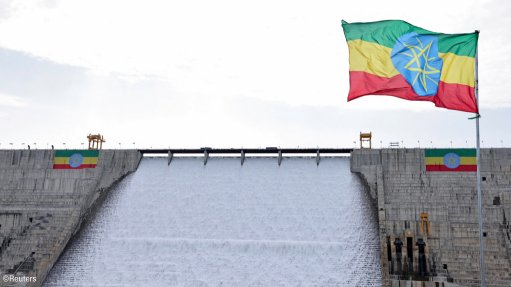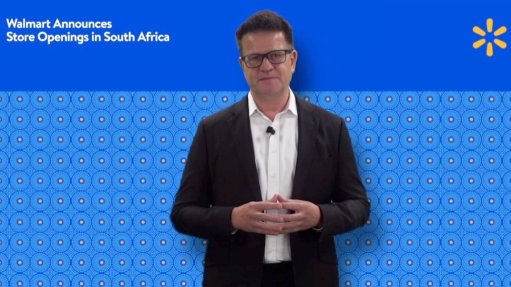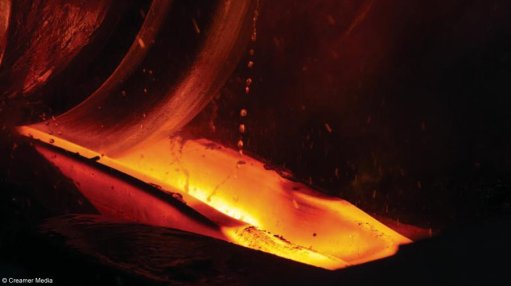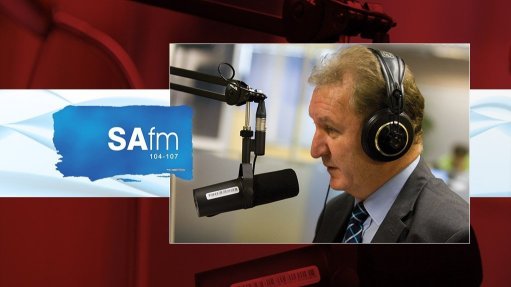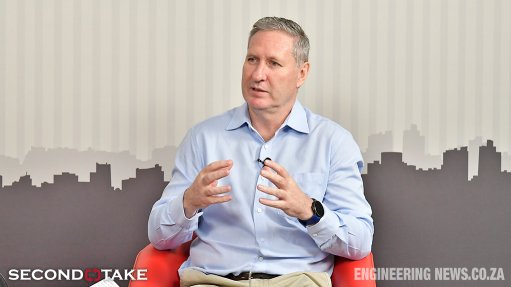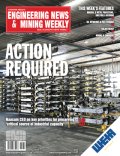Africa Data Centres breaks ground on new solar farm in the Free State

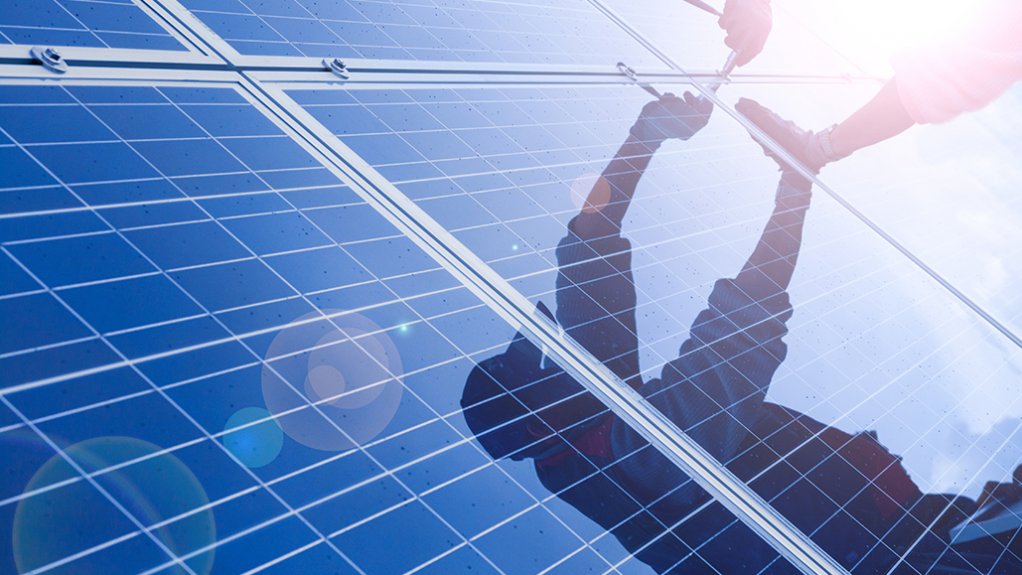
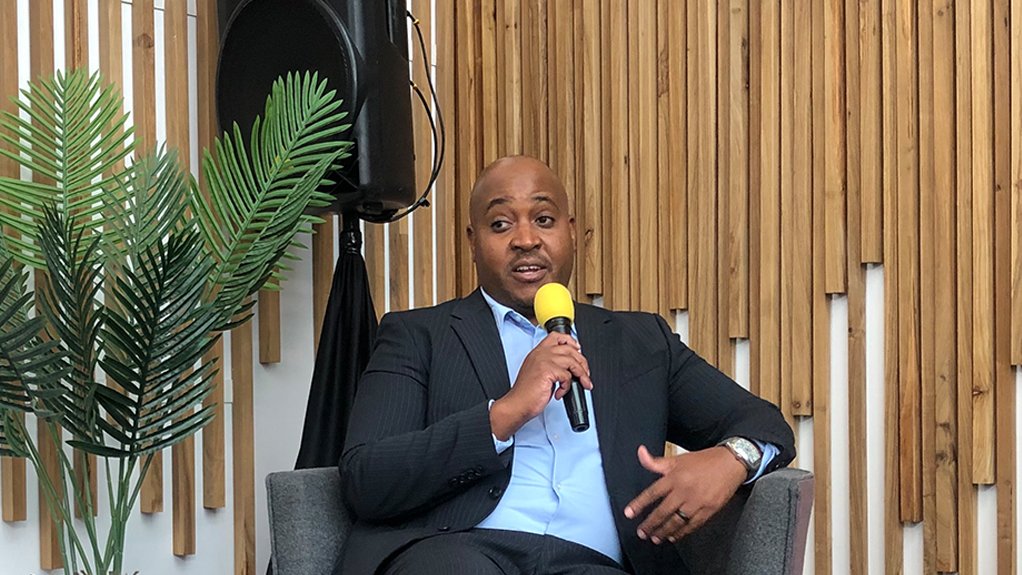
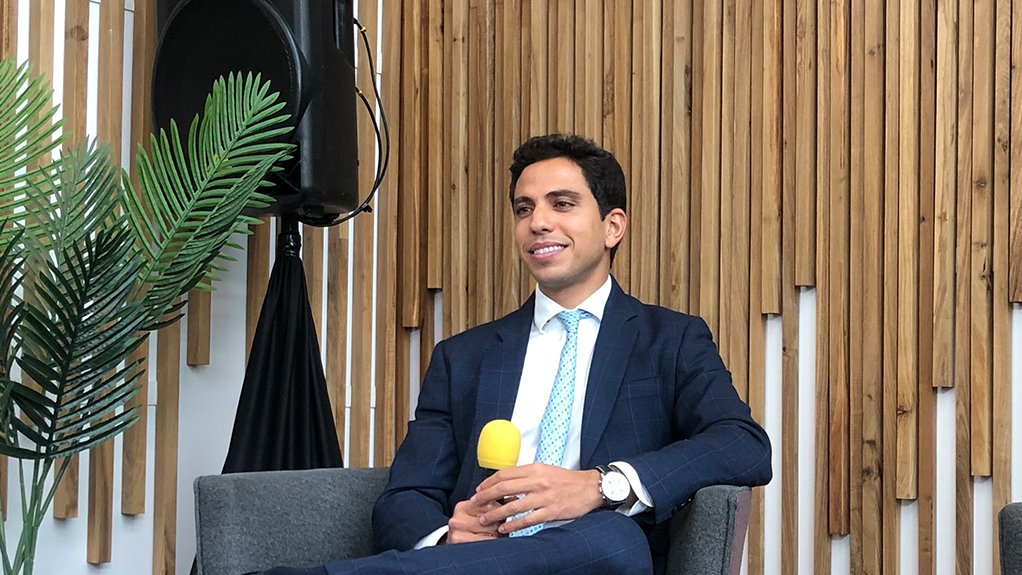
ADC CFO Finhai Munzara
Photo by Creamer Media
DPA Southern Africa CEO Nawfal El Fadil
Photo by Creamer Media
Technology group Cassava Technologies subsidiary Africa Data Centres (ADC) has broken ground on the construction of a solar farm in the Free State in collaboration with solar power company Distributed Power Africa (DPA) Southern Africa.
The first phase will entail the construction of a 12 MW solar plant to power ADC’s CPT1 carrier-neutral data centre in Cape Town, with subsequent phases extending to the company’s two Johannesburg data centres.
ADC CFO Finhai Munzara explained at a launch event in Johannesburg, on April 8, that ADC currently required about 20 MW of power across its facilities, with an additional 5 MW being added to this requirement with the expansion of the Cape Town facility being planned in the near term.
“Once we have concluded some other agreements, particularly around the wheeling framework for the City of Tshwane and the City of Johannesburg, we'll be able to deliver more capacity to our other sites. We want to get to a point where we're sourcing enough renewables to at least match the capacity that we have at our sites,” he said.
The start of construction signals a significant milestone in the 20-year power purchase agreement (PPA) signed in March last year with DPA Southern Africa, which is a joint venture company of French utility Électricité de France.
“This initiative [responds] to South Africa’s energy crisis through sustainable technology solutions. This is in line with a broader industry shift towards innovative, eco-friendly practices. The strategic use of solar power showcases technology's role in pioneering solutions for energy challenges and environmental sustainability,” Cassava Technologies' president and group CEO Hardy Pemhiwa said.
ADC CEO Tesh Durvasula said the start of construction on the solar plant was a significant milestone in the company’s initiative to energise South African data centres sustainably, and was a crucial aspect of the company’s objective of achieving carbon neutrality.
"At the heart of our collaboration lies a shared understanding that the path to carbon neutrality extends beyond infrastructure. It demands innovation, expertise and collective determination to overcome challenges," DPA Southern Africa CEO Nawfal El Fadil added.
He said the project formed a strategic part of ADC's ambition to become the most sustainable colocation provider in Africa.
"Data centres worldwide face scrutiny for their reliance on grid power and renewables, and Africa is no exception. ADC is actively addressing this issue by generating renewable energy, alleviating strain on the local grid. Our sustainability objectives encompass achieving net-zero status at all facilities," Durvasula said.
Al Fadil explained that the Free State was chosen as the ideal location for the plant because of the high solar radiation that the region enjoyed, along with ample grid access, which allowed DPA Southern Africa to effectively wheel electricity to Cape Town and, in future, to Johannesburg.
He explained that, since data centres consumed a flat rate of electricity every day and solar energy provided uneven power, electricity supply would be supplemented from the grid at night and on days where sunshine was insufficient.
Al Fadil said that the first solar panels would be installed within the next three months.
Munzara explained that the solar plant would be able to deliver more than the 12 MW needed for CPT 1, but that the power wheeling framework would allow the excess power generated to be fed back into the grid to offset the grid consumption used by ADC.
“The good thing about a power wheeling framework, and as that develops, is that as the power gets delivered to the grid, we have an offset with what's being delivered and what we use on the other side.
“As the different municipalities work out how wheeling frameworks are done, they might get to a point where we can bank power effectively. So if you over-generate, then you can actually bank that and the grid will then credit somewhere else. I think that's where it's headed,” Munzara explained.
El Fadil said that the solar plant should be delivering electricity by the end of the year.
Comments
Press Office
Announcements
What's On
Subscribe to improve your user experience...
Option 1 (equivalent of R125 a month):
Receive a weekly copy of Creamer Media's Engineering News & Mining Weekly magazine
(print copy for those in South Africa and e-magazine for those outside of South Africa)
Receive daily email newsletters
Access to full search results
Access archive of magazine back copies
Access to Projects in Progress
Access to ONE Research Report of your choice in PDF format
Option 2 (equivalent of R375 a month):
All benefits from Option 1
PLUS
Access to Creamer Media's Research Channel Africa for ALL Research Reports, in PDF format, on various industrial and mining sectors
including Electricity; Water; Energy Transition; Hydrogen; Roads, Rail and Ports; Coal; Gold; Platinum; Battery Metals; etc.
Already a subscriber?
Forgotten your password?
Receive weekly copy of Creamer Media's Engineering News & Mining Weekly magazine (print copy for those in South Africa and e-magazine for those outside of South Africa)
➕
Recieve daily email newsletters
➕
Access to full search results
➕
Access archive of magazine back copies
➕
Access to Projects in Progress
➕
Access to ONE Research Report of your choice in PDF format
RESEARCH CHANNEL AFRICA
R4500 (equivalent of R375 a month)
SUBSCRIBEAll benefits from Option 1
➕
Access to Creamer Media's Research Channel Africa for ALL Research Reports on various industrial and mining sectors, in PDF format, including on:
Electricity
➕
Water
➕
Energy Transition
➕
Hydrogen
➕
Roads, Rail and Ports
➕
Coal
➕
Gold
➕
Platinum
➕
Battery Metals
➕
etc.
Receive all benefits from Option 1 or Option 2 delivered to numerous people at your company
➕
Multiple User names and Passwords for simultaneous log-ins
➕
Intranet integration access to all in your organisation









